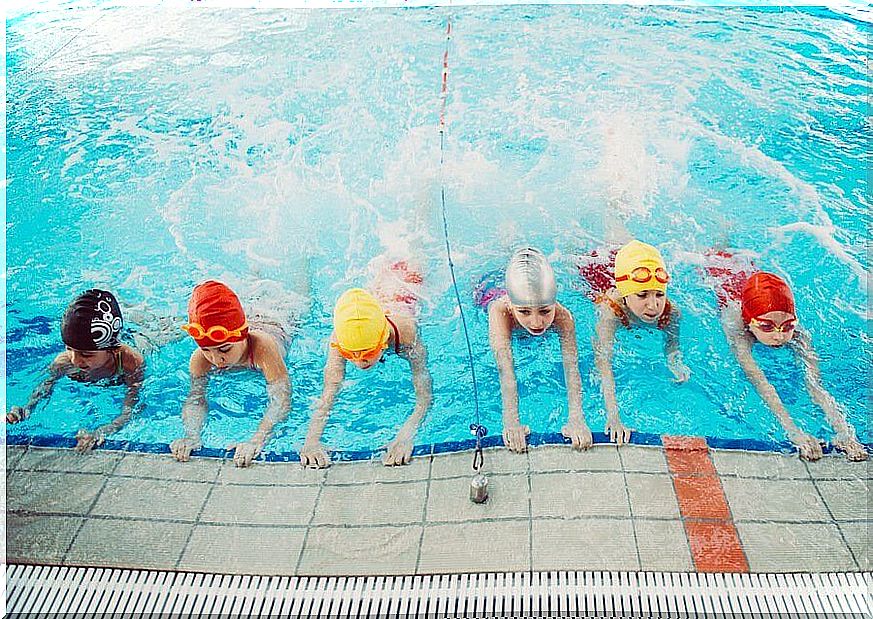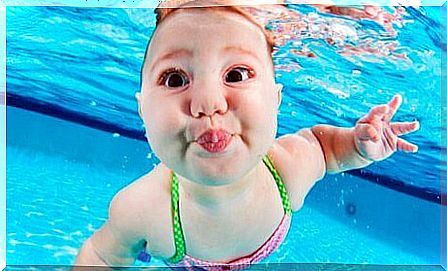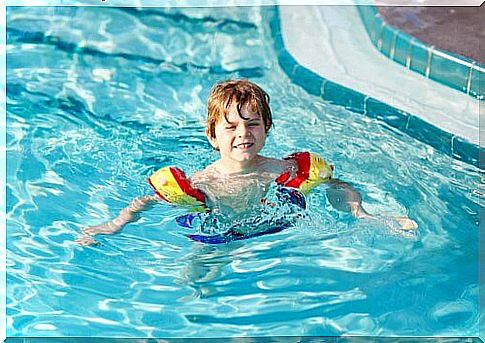Why Is It Important For Children To Learn To Swim?

Safety is one of the main reasons why it is so important that our children learn to swim. However, there are many other benefits. For example, it gives our children the opportunity to interact with other children in pools and at the beach. Swimming is also a very complete and healthy sport.
They must learn to feel comfortable in the water, blow bubbles and hold their breath. Any complete swimming program will also include teaching children how to float on their backs and tread waters.
Learning to swim is incredibly rewarding. Among other benefits, it can, literally, save a child from a dangerous situation. Children are constantly exposed to dangers: rivers, lakes, harbors, boat excursions, pools… Furthermore, the sooner your child learns to swim, the more it contributes to overall mental and physical health.
10 reasons why it is important for your children to learn to swim
Drowning is the second leading cause of accidental death, related to injuries in children aged 0 to 14. It is vital that children learn to swim, from an early age. Parents need to make sure their children are comfortable and safe when moving in or by water.
Considering that swimming takes place in water, then 90 percent of the body floats. Therefore, gravity does not cause the body to hit the ground. Swimming offers endurance training. It is an ideal activity to tone the shoulders, arms, back and abdomen.

It contributes to a child’s physical, emotional and neurological development. At the same time, it reduces the risk of suffering from cardiovascular disease and it improves metabolism. It also increases lung capacity – which increases a child’s resistance to childhood asthma.
Many cities offer public pools and lakes, which families can access for free, or at a very cheap price. Some schools include swimming as part of their education program, and many universities offer student scholarships for swimming.
Swimming allows children to interact with their peers. It is a great opportunity for children to learn social skills and establish friendships.
Swimming offers challenges, achievements and rewards. All of this helps our children gain confidence and believe in their abilities, which build their self-esteem.
Giving children the opportunity to learn how to swim is a huge gift that will accompany them for the rest of their lives. Swimming contributes to your children’s lifelong physical and mental health.
As a result, the risk of suffering from depression is less and the mood is immediately improved.
9. Swimming is highly recommended for children with disabilities
Children with autism, for example, tend to love water. This environment gives them a state of calm that can make them feel better.
The ability to swim opens the door to other sports in water. Some of these include boating, scuba diving, canoeing, kayaking, surfing, triathlon, water polo, etc.
Parents play a fundamental role when it comes to teaching their children to swim. Their presence provides their children with a greater sense of security and stability, which strengthens the family bond.

Below, you will find a list of suggestions you can keep in mind when it comes to teaching your children to swim:
- You should teach your children to swim as early as possible. It is best that children learn to swim before they reach the age of 6 years.
- In order for children to get used to the idea of learning to swim, it is important for them to see other children swim and have fun. This will help them associate swimming with having fun.
- Parents should join the water and accompany their children for as long as they wish.
- The best thing you can do is learn through play, and capture the attention of your children.
- It is important not to pressure your children. Stay as relaxed as possible so your kids can relax too.
- A relaxed environment will help your children enjoy the activity, and motivate them to learn to swim. Do your best to make it a positive experience that your child will want to try again.
These basic but effective remarks will make the task of teaching your children to swim much simpler. As you have seen, the benefits of swimming are innumerable and they last a lifetime.









